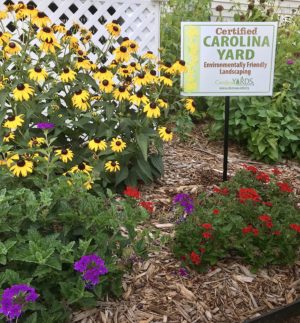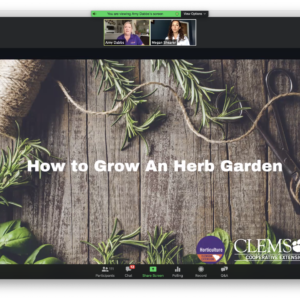The Clemson Extension Water Resources team has become a trusted source of research-based information regarding stormwater and recreational pond management. Agents are able to advise on integrated pest management, aquatic weed identification, water quality testing, and upland best management practices. Generally, these programs are held in person and have a field component.
A recreational pond management workshop entitled Maintaining a Healthy Pond was originally scheduled for late April in Sumter. However, in response to COVID-19, this program was made available through an online format. The intended audience was pond managers, private pond owners, and HOA residents. Topics included recreational pond chemistry, aquatic weeds, and integrated pest management, upland best management practices, and communication. A total of twenty-seven participants attended this webinar, which included SC DHEC watershed managers, engineers, environmental scientists, regulators, as well as private pond owners and HOA members.
A survey was administered through SurveyMonkey to estimate knowledge gained and acquire feedback from attendees. One hundred percent of respondents agreed or strongly agreed the webinar was a good use of their time. Additionally, forty-three percent said the training increased their pond management knowledge “a lot”, while twenty-nine percent reported their knowledge was increased “some”. When asked if participants planned to implement practices learned in the webinar into their pond management decisions, seventy-one percent indicated they would. When asked which component of the conference was most useful, these are the most notable responses:
“I enjoyed having all the experts in one “room” together, getting all their input on Q&A at once, and hearing the diversity of presentations. Weed management was probably the most pressing issue for me, but I gained something from each session!”
“All components were useful and refreshed my memory from the Master Pond Manager Class”
The 2020 spring Maintaining a Healthy Pond webinar was seen as a success by the presenters and will be offered at least yearly to help new pond owners properly care for their ponds and ultimately protect water quality downstream.
Submitted by: Water Resources Extension Agents Karen Jackson, Amy Scaroni, Katie Altman, and Charly McConnell


